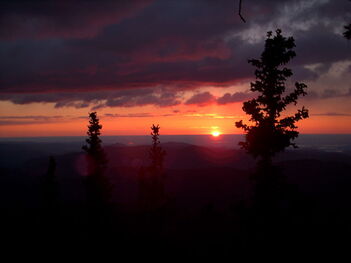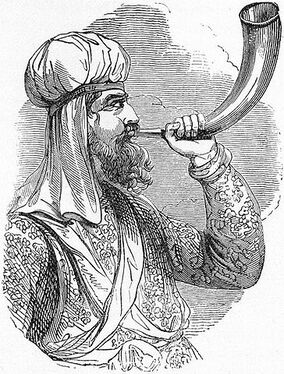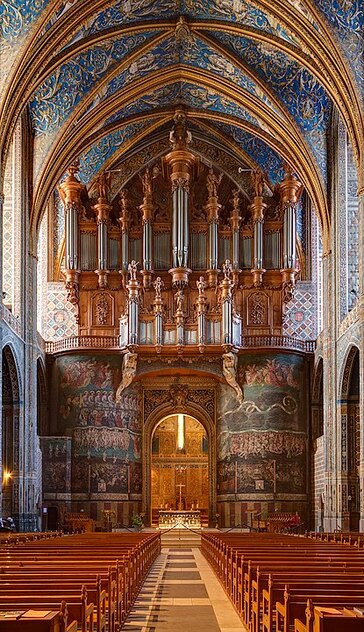 By LeilaN - Own work, Public Domain, https://commons.wikimedia.org/w/index.php?curid=4541818 By LeilaN - Own work, Public Domain, https://commons.wikimedia.org/w/index.php?curid=4541818 Jubilee Sunday is a time for new beginnings. When we as a church break from our summer routines and enter the new program year with hope and optimism. Sure, it will look very different this time around. And be a little quieter in the church halls. But engaged we will be nonetheless! Happy Jubilee Sunday. Antonin Dvořák composed his Sonatina in G Major for violin and piano, opus 100 in just a two week period during his trip to America in 1893. With the purpose of furthering the musical abilities of his children, he writes, "It is intended for youths (dedicated to my two children), but even adults, grownups, should be able to converse with it." And so we will. Violinist Harmony Tucker presents the rousing fourth and final movement, "Allegro." The 8th century Irish text "Christ Be Beside Me" is an excerpt from the prayer St. Patrick's Breastplate, originally attributed to St. Patrick himself. It is a prayer of protection and the affirmation of Christ's omnipresence. We will hear it paired with the Gaelic tune Bunessan in a setting evoking Celtic and jazz tonalities intertwined with the Irish tune St. Columba. Cantor Lucas Jackson sings this lovely work during the Musical Offering. Jacques-Nicolas Lemmens was a prominent organist and music teacher in 19th century Belgium. He was known for his virtuosic pedal playing due to his extensive study of the organ works of J.S. Bach. This Sunday though, we'll hear a work originally set for the manuals only. The "Fanfare" is a flashy brilliant piece taken from his 1862 organ method book, "Ecole d'orgue" (school of organ.)
0 Comments
 By Illustrator of Henry Davenport Northrop's 'Treasures of the Bible', 1894 - http://www.lavistachurchofchrist.org/Pictures/Treasures%20of%20the%20Bible%20(Moses)/images/scan0033.jpg, Public Domain, https://commons.wikimedia.org/w/index.php?curid=6749319 By Illustrator of Henry Davenport Northrop's 'Treasures of the Bible', 1894 - http://www.lavistachurchofchrist.org/Pictures/Treasures%20of%20the%20Bible%20(Moses)/images/scan0033.jpg, Public Domain, https://commons.wikimedia.org/w/index.php?curid=6749319 "How to approach the holy?" This is a question asked by each soul in his or her own way, knowingly or unknowingly, over the millennia. The providence of God revealed, loudly, in the blast of horns. It's the Jubilee! To Leviticus we go this Sunday morning. "Soliloquy" by David Conte has become an oft-performed work in the organ repertoire since its publication in 1997. It is dedicated to Walter "Chick" Holtkamp, Jr., and was premiered at the Cleveland Museum of Art in 1996 as part of "ChickFest," a festival celebrating his forty years of organ building. In Conte's words, this wistful work is "in simple ABA form. The principal idea is an angular, lyrical melody, at once both proud and shy, first stated in the solo flute and accompanied by a gently pulsing ostinato. The central section becomes more animated and rises to a declamatory climax. The character of the opening music returns in the final section.". The beautiful concept of God as caretaker of all creation is perhaps expressed most clearly in the traditional spiritual "He's Got the Whole World in His Hands." Soprano Andrea Weidemann offers a flowing setting of the song by Moses Hogan. Known for his ambitious and thrilling choral arrangements of traditional spirituals, this solo work takes on a very different air: calm dignity barely concealing a brimming joyful conviction. The trumpet shall sound with David Johnson's jaunty "Trumpet Voluntary in E Flat Major" at the Postlude. Composed in homage to the Baroque trumpet voluntary, the form is clear and concise. The solo trumpet theme alternates with a response on the Great Organ. A minor key 'B' section briefly interrupts the festivities before inviting the return of the main theme, its final reiteration on Full Organ. Classic. I’ve heard an Organ talk, sometimes In a Cathedral Aisle, And understood no word it said Yet held my breath, the while And risen up and gone away, A more Berdardine Girl Yet know not what was done to me In that old Hallowed Aisle. - Emily Dickinson  By PierreSelim - Self-photographed, CC BY 3.0, https://commons.wikimedia.org/w/index.php?curid=31317756 By PierreSelim - Self-photographed, CC BY 3.0, https://commons.wikimedia.org/w/index.php?curid=31317756 To be transformed by an unforeseen source is all the more a mystery. A foreign culture. An arcane instrument. Weird music. From Aaron Copland's 1950 song cycle Twelve Poems of Emily Dickinson we hear number ten, "I've Heard an Organ Talk Sometimes", sung by soprano Blair Carpenter. Copland creates a sacred space of sound as the character of Dickinson's poem enters a cathedral and encounters the mysterious sanctuary pipe organ. A stranger in a strange land, brave yet altered, much like Ruth and Naomi crossing the border in the scripture reading this Sunday morning. And indeed we too will hear the organ speak! Two selections from esteemed American composer and organist Emma Lou Diemer will be offered. First, her setting on the beloved hymn "Joyful, Joyful, We Adore Thee": a playful and eccentric arrangement culminating in an ecstatically dissonant final verse. Second, the "Toccata for a Joyful Day": a flashy ode to joy and burst of optimism for the day ahead. |
Details
|

 RSS Feed
RSS Feed